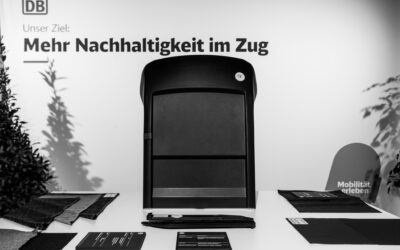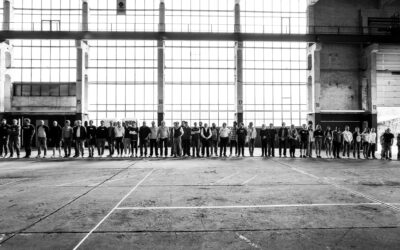The state of Baden-Württemberg supports a research project for the production of biocarbon from renewable raw materials
Joint press release by carbonauten GmbH and the University of Hohenheim
Giengen. 25.01.2022 – Producing biocarbon from renewable raw materials and meeting the necessary energy requirements in a climate-neutral way – this is the goal of a joint research project of carbonauten GmbH and the Department of Conversion Technologies of Renewable Raw Materials at the University of Hohenheim. After the grant from the Bioeconomy Innovation and Investment Program for Rural Areas (BIPL BW) of the Ministry of Food, Rural Areas and Consumer Protection Baden-Württemberg was approved in December 2021, the two-year research project is now starting. As a result, a plant module is to be created with which biocarbons obtained from biomass residues can be activated by steam. The basis for this is the minus CO2 technology of carbonauten: Carbonization plants convert biomass residues into technical biocarbons, which permanently bind CO2 from the atmosphere and creates a surplus of renewable energy.
“The demand for activated carbon as an adsorbent for chemicals and medicine, wastewater and exhaust gas treatment or air conditioning technology is constantly increasing,” explains Torsten Becker, managing director of carbonauten. “But so far, it is usually created from fossil resources, and the processes require large amounts of energy, also mostly from fossil sources. China is the world’s largest producer, predominantly using environmentally unfriendly processes. We are convinced that this can be done in a more ecologically sustainable and economical way with our system. We are therefore pleased to be able to prove this in our largest research project to date together with the University of Hohenheim.”
In the first step, a research group from the Department of Conversion Technologies of Renewable Resources at the University of Hohenheim, led by Prof. Dr. Andrea Kruse and in collaboration with carbonauten, is creating small prototype retorts. These are reactors in which steam and heat are designed to act as uniformly as possible on the coal in order to activate it. The ideal type of biomass as a starting material for the activated carbon is determined in the process as well.
In the next step, carbonauten will construct a prototype in 1:1 format at their pilot site in Eberswalde. Their carbonization plants provide the technological basis, and the energy requirements of the activation retorts are covered by the energy surplus from the carbonization of biomass residues – all in all, a process that is not only climate-neutral but even CO2-negative thanks to carbonauten’s underlying minus CO2 technology.
Becker explains: “Our strategic goal is to set up decentralized plants for the production of bioactivated carbon in Baden-Württemberg as soon as possible, which, in the sense of a circular bioeconomy, make use of regionally arising biomass residual flows. The production of bioactivated carbon removes carbon from the carbon cycle over a long period of time. The replacement of fossil activated carbon saves CO2 emissions and prevents environmentally problematic production. It also creates new sources of income in rural areas.”
The cooperation is also an important step for Prof. Dr. Andrea Kruse: “We have been working on the production of activated carbons and high-performance carbons for many years. We also want to bring this knowledge into application. carbonauten is particularly interesting for us as a partner because they build compact and modularly expandable plants and represent a decentralized concept. In bioeconomy, it is important that transport distances are short, yet the plants do not become expensive due to their size (economy of scale). This requires new technologies, and carbonauten has developed a particularly good one.”



